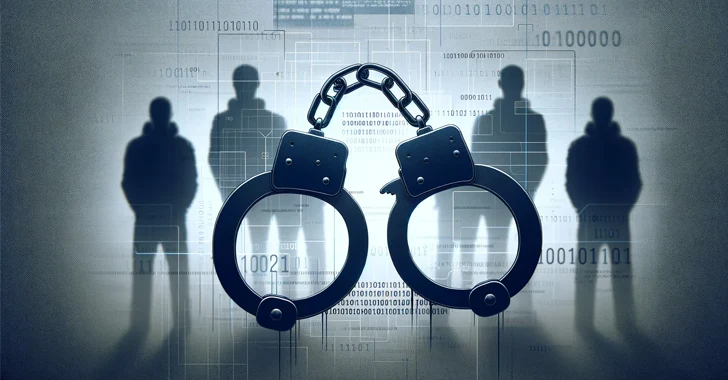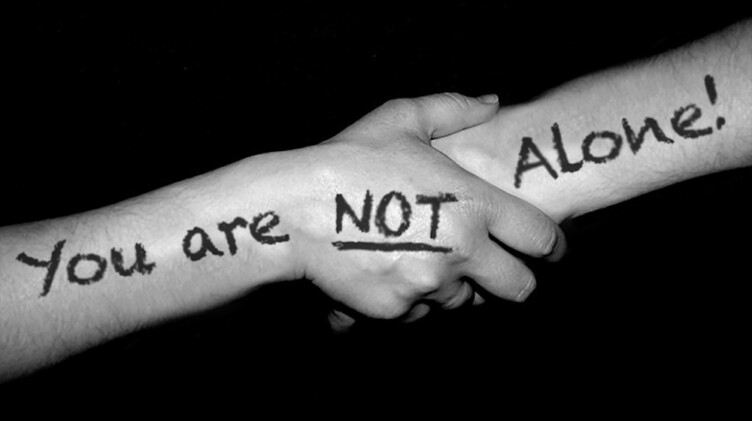Reclaiming Your Worth
A Scam Survivor’s Guide to Navigating Your Worthiness After the Scam
Author:
• Tim McGuinness, Ph.D. – Anthropologist, Scientist, Director of the Society of Citizens Against Relationship Scams Inc.
Your Worth? AXIOS! You Are Worthy
Falling victim to a scam can feel like a brutal assault on your identity and your worth.
The perpetrator, skilled in the art of deception, exploits your trust and vulnerabilities, leaving you reeling with a cocktail of anger, betrayal, and profound self-doubt.
The question that echoes through the haze of disillusionment becomes a gnawing refrain: “Am I still worthy?”
The answer, resounding and clear, is YES!
But the journey to reclaiming your worth, after being so cruelly manipulated, is rarely linear. It’s a path paved with introspection, vulnerability, and a fierce commitment to self-compassion.
Your Worth: Finding the Path Back to Worthiness
Here are some steps you can take to rebuild your sense of worth after the storm of a scam:
1. Worthiness – Acknowledge the Pain: Denying the hurt, anger, and vulnerability only prolongs the agony. Allow yourself to grieve the loss, not just of money or possessions, but of the trust that was violated. Acknowledge the emotional blow without judgment. This isn’t weakness; it’s the first step towards healing.
2. Worthiness – Reframe the Narrative: Scammers operate by distorting the narrative, making you believe you’re the fool, the one who deserved this. Reclaim your agency. You were targeted, not because of any inherent flaw, but because you possess qualities like trust, empathy, and a desire to connect – qualities that make you human and worthy. You were tricked, not condemned.
3. Worthiness – Seek Support: Don’t isolate yourself in this process. You are here, seeking the support we provide, but are you really taking full advantage of it or the other tools we offer? See our SCARS Resources below.
Surround yourself with supportive friends, family, and a therapist who can offer a safe space for you to process your emotions without judgment. Sharing your story and finding validation can be immensely empowering.
4. Worthiness – Prioritize Self-Care: The emotional drain of a scam can take a toll on your physical and mental well-being. Prioritize activities that nurture your soul, whether it’s a walk in nature, a creative outlet, or simply a quiet moment of reflection. Self-care isn’t selfish; it’s the foundation for reclaiming your strength and resilience.
5. Worthiness – Focus on Control: Scammers thrive on creating a sense of powerlessness. Reclaim your control by taking small, positive actions. Update your passwords, report the scam to relevant authorities, and educate others to prevent similar experiences. These proactive steps empower you and demonstrate that you are not a victim, but a survivor.
6. Worthiness – Remember Your Strengths: The scam may have shaken your trust and judgment, but your inherent worth remains intact. Remind yourself of your strengths, talents, and achievements. Remember the times you overcame challenges, demonstrated resilience, and showed kindness. This self-affirmation fuels your journey back to confidence.
The SCARS Worthiness Affirmations:
-
- You are a Survivor
- It was NOT Your Fault
- You are NOT Alone
- Axios
7. Worthiness – Forgive Yourself: Holding onto self-blame is a heavy burden. Remember, you were deceived, not foolish. Grant yourself the same compassion and understanding you would offer a friend in a similar situation. Forgiveness is not about condoning the scammer’s actions; it’s about releasing yourself from the weight of self-accusation.
8. Worthiness – Find New Beginnings: Don’t let a scam define you. Focus on your passions, explore new interests, and pursue dreams you might have put on hold. This is an opportunity for rediscovery and redefining your path. Embrace the fresh possibilities that lie ahead.
Your Worth: The Road Home to Worthiness
The road to reclaiming your worth after a scam is challenging, but it’s a journey worth taking. With self-compassion, active healing, and a commitment to moving forward, you can emerge from the shadows stronger, wiser, and more authentically you.
Remember, your worth is not measured by the deception you encountered, but by the resilience you find within yourself to rise above it. You are valuable, you are worthy, and you are capable of rebuilding a life filled with trust, connection, and lasting worth.
Your Worth: You Are NOT Alone!
You are not alone. Take this journey one step at a time, and know that you are capable of reclaiming your worth.
More:
- What Really Are Vulnerabilities That Lead To Scams? (scamsnow.com)
- Romance Scam Victims & The Holidays – 2023 (scamsnow.com)
- Toxic Self-Narratives That Feeds Depression in Scam Victims 2023 (scamsnow.com)
- Filling The Victim Void After The Fake Relationship Is Gone 2023 (scamsnow.com)
- Psychological Triggers/Emotional Triggers – What They Are And How They Work – 2023/2024 (scamsnow.com)
- Fear Of Contagion: Why Scam Victims Are Harshly Judged And Blamed 2023 (scamsnow.com)
- Magic & Relationship Scams – Both Involve Similar Manipulation & Control – 2023 (scamsnow.com)
- Cognitive Biases Catalog 2023/2024 (romancescamsnow.com)
- Recovering From Scams (romancescamsnow.com)
- Recovery & Support (romancescamsnow.com)
- The Psychology of Scams (romancescamsnow.com)
- Psychology & Trauma (romancescamsnow.com)
SCARS Resources:
- For New Victims of Relationship Scams newvictim.AgainstScams.org
- Subscribe to SCARS Newsletter newsletter.againstscams.org
- Sign up for SCARS professional support & recovery groups, visit support.AgainstScams.org
- Find competent trauma counselors or therapists, visit counseling.AgainstScams.org
- Become a SCARS Member and get free counseling benefits, visit membership.AgainstScams.org
- Report each and every crime, learn how to at reporting.AgainstScams.org
- Learn more about Scams & Scammers at RomanceScamsNOW.com and ScamsNOW.com
- Global Cyber Alliance ACT Cybersecurity Tool Website: Actionable Cybersecurity Tools (ACT) (globalcyberalliance.org)
- Self-Help Books for Scam Victims are at shop.AgainstScams.org
- Donate to SCARS and help us help others at donate.AgainstScams.org
- Worldwide Crisis Hotlines: International Suicide Hotlines – OpenCounseling : OpenCounseling
- Campaign To End Scam Victim Blaming – 2024 (scamsnow.com)
More ScamsNOW.com Articles
-/ 30 /-
What do you think about this?
Please share your thoughts in a comment below!
SCARS LINKS: AgainstScams.org RomanceScamsNOW.com ContraEstafas.org ScammerPhotos.com Anyscam.com ScamsNOW.com
reporting.AgainstScams.org support.AgainstScams.org membership.AgainstScams.org donate.AgainstScams.org shop.AgainstScams.org
youtube.AgainstScams.org linkedin.AgainstScams.org facebook.AgainstScams.org
5 Comments
Leave A Comment
TABLE OF CONTENTS
CATEGORIES
![NavyLogo@4x-81[1] Reclaiming Your Worth: A Scam Survivor's Guide to Navigating Your Worthiness After a Scam - 2023](https://scamsnow.com/wp-content/uploads/2025/04/NavyLogo@4x-811.png)
ARTICLE META
Important Information for New Scam Victims
- Please visit www.ScamVictimsSupport.org – a SCARS Website for New Scam Victims & Sextortion Victims.
- SCARS Institute now offers its free, safe, and private Scam Survivor’s Support Community at www.SCARScommunity.org – this is not on a social media platform, it is our own safe & secure platform created by the SCARS Institute especially for scam victims & survivors.
- SCARS Institute now offers a free recovery learning program at www.SCARSeducation.org.
- Please visit www.ScamPsychology.org – to more fully understand the psychological concepts involved in scams and scam victim recovery.
If you are looking for local trauma counselors, please visit counseling.AgainstScams.org
If you need to speak with someone now, you can dial 988 or find phone numbers for crisis hotlines all around the world here: www.opencounseling.com/suicide-hotlines
Statement About Victim Blaming
Some of our articles discuss various aspects of victims. This is both about better understanding victims (the science of victimology) and their behaviors and psychology. This helps us to educate victims/survivors about why these crimes happened and not to blame themselves, better develop recovery programs, and help victims avoid scams in the future. At times, this may sound like blaming the victim, but it does not blame scam victims; we are simply explaining the hows and whys of the experience victims have.
These articles, about the Psychology of Scams or Victim Psychology – meaning that all humans have psychological or cognitive characteristics in common that can either be exploited or work against us – help us all to understand the unique challenges victims face before, during, and after scams, fraud, or cybercrimes. These sometimes talk about some of the vulnerabilities the scammers exploit. Victims rarely have control of them or are even aware of them, until something like a scam happens, and then they can learn how their mind works and how to overcome these mechanisms.
Articles like these help victims and others understand these processes and how to help prevent them from being exploited again or to help them recover more easily by understanding their post-scam behaviors. Learn more about the Psychology of Scams at www.ScamPsychology.org
SCARS INSTITUTE RESOURCES:
If You Have Been Victimized By A Scam Or Cybercrime
♦ If you are a victim of scams, go to www.ScamVictimsSupport.org for real knowledge and help
♦ SCARS Institute now offers its free, safe, and private Scam Survivor’s Support Community at www.SCARScommunity.org/register – this is not on a social media platform, it is our own safe & secure platform created by the SCARS Institute especially for scam victims & survivors.
♦ Enroll in SCARS Scam Survivor’s School now at www.SCARSeducation.org
♦ To report criminals, visit https://reporting.AgainstScams.org – we will NEVER give your data to money recovery companies like some do!
♦ Follow us and find our podcasts, webinars, and helpful videos on YouTube: https://www.youtube.com/@RomancescamsNowcom
♦ Learn about the Psychology of Scams at www.ScamPsychology.org
♦ Dig deeper into the reality of scams, fraud, and cybercrime at www.ScamsNOW.com and www.RomanceScamsNOW.com
♦ Scam Survivor’s Stories: www.ScamSurvivorStories.org
♦ For Scam Victim Advocates visit www.ScamVictimsAdvocates.org
♦ See more scammer photos on www.ScammerPhotos.com
You can also find the SCARS Institute’s knowledge and information on Facebook, Instagram, X, LinkedIn, and TruthSocial
Psychology Disclaimer:
All articles about psychology and the human brain on this website are for information & education only
The information provided in this and other SCARS articles are intended for educational and self-help purposes only and should not be construed as a substitute for professional therapy or counseling.
Note about Mindfulness: Mindfulness practices have the potential to create psychological distress for some individuals. Please consult a mental health professional or experienced meditation instructor for guidance should you encounter difficulties.
While any self-help techniques outlined herein may be beneficial for scam victims seeking to recover from their experience and move towards recovery, it is important to consult with a qualified mental health professional before initiating any course of action. Each individual’s experience and needs are unique, and what works for one person may not be suitable for another.
Additionally, any approach may not be appropriate for individuals with certain pre-existing mental health conditions or trauma histories. It is advisable to seek guidance from a licensed therapist or counselor who can provide personalized support, guidance, and treatment tailored to your specific needs.
If you are experiencing significant distress or emotional difficulties related to a scam or other traumatic event, please consult your doctor or mental health provider for appropriate care and support.
Also read our SCARS Institute Statement about Professional Care for Scam Victims – click here
If you are in crisis, feeling desperate, or in despair, please call 988 or your local crisis hotline – international numbers here.
More ScamsNOW.com Articles
A Question of Trust
At the SCARS Institute, we invite you to do your own research on the topics we speak about and publish. Our team investigates the subject being discussed, especially when it comes to understanding the scam victims-survivors’ experience. You can do Google searches, but in many cases, you will have to wade through scientific papers and studies. However, remember that biases and perspectives matter and influence the outcome. Regardless, we encourage you to explore these topics as thoroughly as you can for your own awareness.
























![scars-institute[1] Reclaiming Your Worth: A Scam Survivor's Guide to Navigating Your Worthiness After a Scam - 2023](https://scamsnow.com/wp-content/uploads/2025/04/scars-institute1.png)

![niprc1.png1_-150×1501-1[1] Reclaiming Your Worth: A Scam Survivor's Guide to Navigating Your Worthiness After a Scam - 2023](https://scamsnow.com/wp-content/uploads/2025/04/niprc1.png1_-150x1501-11.webp)
I feel that I’m in the place of rediscovering my worthiness these last few days. I have days when I’m certain I am worthy and others when I’m not so sure. Thank you for the reminder to reframe the narrative – that I was targeted because I’m trusting, empathetic and caring – not because I’m a fool. I am seeking help from my therapist and trying to give myself grace. I have forgiven myself and released the self-blame. I had to – it was eating me alive in so many ways. My life at this point is all about new beginnings and I’m excited to see where I’ll land next. This article inspires me to continue and stay focused on this path carved out for me by SCARS.
As an individual I process my emotions slowly whether it is shock, trauma, anger, disbelief. In the cycle of recovery I sometimes have to revisit certain things several times before I am able to take the next step forward. This article will assist me greatly in taking the next new steps forward. Since my crime even though I have acknowledged it as a scam and as a crime against myself and my value I have struggled with my self worth. This article is just what I needed to read to help me through the steps towards always feeling worthy, seeing my value and forgiving myself.
I’ve had to read this article a few times and reflected on it’s significance to my trauma. I needed a good cry to relieve the anxiety I felt inside. I will need to read it again in a couple days to be able to let it sink in more. Taking small steps toward forgiveness will help me find a new beginning and reclaiming my worthiness.
Thank you for the courage in your comment! You are a SURVIVOR!
Mahammad Ali: “There’s nothing wrong with getting knocked down as long as you get right back up”.